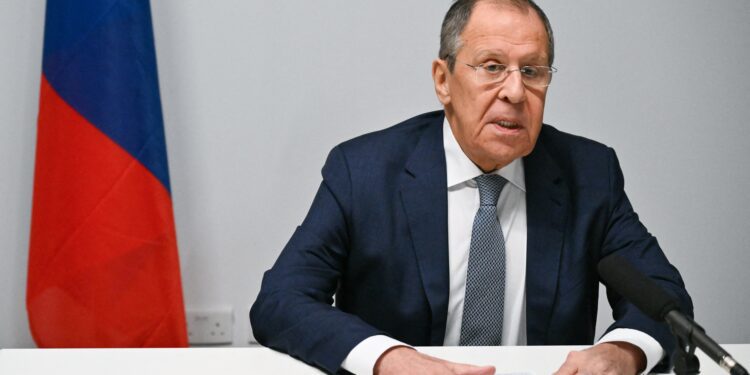The foreign minister of Russia dismissed suggestions made by individuals from the Trump transition team regarding the negotiation of a ceasefire in Ukraine, raising concerns about the president-elect’s ability to secure a peace agreement within his first 24 hours in office—as he often indicated during his campaign.
In an interview with the state-run news agency TASS, Sergey Lavrov, the foreign minister, communicated to the press that Russia has not received any “official signals regarding a settlement” from Trump’s team, yet he quickly voiced his disapproval of the ideas he had encountered in the media.
The Trump transition team has not disclosed an official blueprint for what a peace plan might entail, and Trump has declined to elaborate in recent discussions to maintain the confidentiality of the negotiation process. “If I start revealing that plan, it almost becomes a useless plan,” the president-elect remarked to Time magazine during a December interview.
However, some information regarding the Trump administration’s intentions has gradually emerged. Following his electoral win in November, the Wall Street Journal reported that discussions within Trump’s transition team included a peace agreement that would promise Ukraine’s ban from NATO for 20 years. Early in December, sources informed the Journal that Trump had conversations with both Ukrainian President Volodymyr Zelensky and French President Emmanuel Macron about the potential deployment of European troops to Ukraine to oversee a ceasefire.
Lavrov emphasized that Russia is aware of the proposals put forth by the incoming administration.
“Based on numerous leaks and Donald Trump’s interview with Time magazine on December 12, their idea appears to be to halt hostilities along the line of contact and shift the responsibility for the confrontation with Russia onto the Europeans,” Lavrov told the media.
“We are not pleased, of course, with the suggestions made by members of the Trump team to delay Ukraine’s entry into NATO for 20 years and to place British and European peacekeeping forces in Ukraine,” Lavrov added.
Vice President-elect J.D. Vance presented another proposal during a podcast interview in September—which would permit Russia to retain control of the territories it currently occupies and ensure Ukraine’s neutrality. The foreign minister did not comment on these suggestions, which bear resemblance to a plan previously proposed by Russian President Vladimir Putin in June.
On Monday, Lavrov also stated that only President Joe Biden, who is currently in office, holds the authority to engage in negotiations with Russia until Trump is inaugurated on January 20, expressing skepticism about the possibility of reinstating diplomatic communication between the U.S. and Russia with the incoming administration.
This is not the first instance in which Russian officials have expressed doubts about the potential for a swift resolution to the conflict, which erupted following Russia’s invasion in February 2022.
“The Ukrainian crisis cannot be resolved in a single day,” Vassily Nebenzia, Russia’s permanent representative to the United Nations, stated to reporters in July, shortly after Trump made similar assertions during a televised debate with then-Democratic candidate President Joe Biden, Reuters reported.


